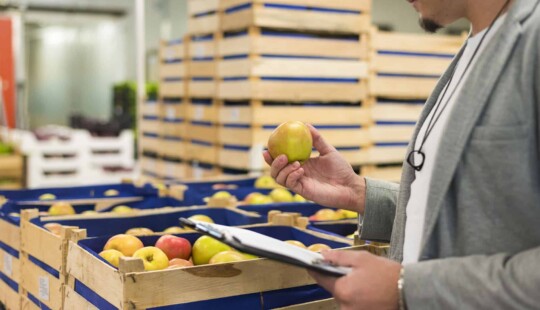At the World Economic Forum in Davos this week, Catalyst 2030 is launching the Catalyst Business Commitment with support from the Global Alliance for Social Entrepreneurship. The commitment recognizes businesses that provide funding and support for mission-locked social enterprises and include them as a significant percentage of their procurement spend.
Many companies are already embracing and working with the so-called social economy.
The social economy is a term referring to social enterprises, nonprofits, cooperatives, and other organizations prioritizing social and environmental values.
This commitment is a way for them to gain recognition for their engagement with social entrepreneurship and for Catalyst 2030 to raise the profile of social enterprise in business supply chains. SAP has signed on to the commitment, achieving platinum status, alongside other businesses that include Compass Diversified, eBay, EY, Lex Mundi, and Microsoft.
Leading Through Partnership
The commitment is fully aligned with the company’s corporate social responsibility (CSR) strategy. At SAP, we firmly believe that supporting the social enterprise sector is the key to driving long-term social and environmental impact, creating business value, and meeting global environmental, social, and governance (ESG) goals. That is why, for over a decade now, we have been actively investing in this sector.
We have developed deep and strategic partnerships with organizations such as Acumen, ChangemakerXChange, Euclid Network, MovingWorlds, PYXERA Global, Social Enterprise World Forum, Social Enterprise UK, We Are Family Foundation, Yunus Social Business, and others. They have all fundamentally shaped and influenced our strategic thinking around the role that SAP can play in accelerating the sector, many of them working together as partners and champions in the Global Alliance for Social Entrepreneurship.
“What I find exciting about SAP is that they have internalized the lessons learned from their work with social entrepreneurs, such as the need for systems change and collaboration, and applied that to their own business strategy.”
– Daniel Nowack, Head of
Global Alliance for Social Entrepreneurship
Our participation in the Catalyst Business Commitment builds on our existing partnership. In June 2022, we were honored to receive the Catalyst 2030 award, which recognizes our commitment to collaborating with social entrepreneurs and delivering work that focuses on inclusiveness, equity, and sustainability.
We were celebrated for our commitment to efforts that include our pro-bono consulting programs. These programs connect SAP employees with social enterprises from all around the world and open up new opportunities for social impact and leadership development on a large scale. It enables social enterprises to leverage SAP’s expertise and adjust their businesses to the current challenging environment, while also refining and adapting their innovative business models in areas such as climate action, circular economy, and equality.
In fact, end-to-end impact measurement company and social enterprise, 60 Decibels, found that after a decade of impact, pro-bono consulting programs from SAP increase employee engagement, retention, and growth. With results like these, we knew we could not keep this to a program only available to a select few at SAP. So, together with social enterprise MovingWorlds and alongside Unilever, EY TRANSFORM, and others, we launched the TRANSFORM Support Hub, a virtual pro bono consulting platform. We invite all organizations and sectors to join us in contributing to and benefiting from the hub.
Catalyst 2030 is a global network of social entrepreneurs and innovators committed to developing the social economy. It was launched at the World Economic Forum in Davos in 2020.
By working in partnership with organizations like SAP, Catalyst 2030 aims to build the social economy ecosystem, promote entrepreneur well-being, and shift the narrative, challenging traditional power structures and creating partnerships.
Jeroo Billimoria, cofounder of Catalyst 2030 says, “If we truly respect each other’s strengths and partner on an equal footing, we can, through partnerships, accelerate change and impact.”
Catalyst 2030 is a hub of collaboration. It provides a space where organizations can partner across traditional divides for systems change. There are currently 35 named collaborations, each with their own objectives as well as multiple working groups, regional chapters, and country chapters focusing on a variety of challenges and sectors.
Partnering to Eliminate Risk and Achieve Sustainability Goals
SAP has been a leading organization and key collaborator with Catalyst 2030 members for many years. They have played a valuable ecosystem building role sitting at the intersection among various groups in social enterprise and the private sector to create new market access for social enterprises through business partnerships such as social procurement.
For example, SAP has collaborated with Catalyst 2030 member Buy Social USA since 2020. Buy Social USA worked with us to identify verified social enterprise suppliers for our own supply chain in the U.S., which also helps to meet our sustainability goals. Based on our own experience, we introduced other corporate partners searching for responsible procurement solutions to Buy Social USA. SAP has repeated this model both inside and outside the U.S. — for example, with Buy Social Canada, Social Enterprise Netherlands, and Social Traders — creating much needed demand and raising the profile of social enterprise for potential buyers.
“Social procurement needs to be built from both sides. We need to show demand from the buyer side as well as incentivize social enterprises to bring the supply. When SAP commits and engages, it is showing and encouraging demand as well as bringing their tools to help identify social enterprises as suppliers.”
– Rebecca Dray, Executive Director of
Buy Social USA, Catalyst 2030 member
One of the key risks for businesses seeking to incorporate social enterprise into their supply chain is that of social- or impact-washing, or green-washing. Businesses need to know that suppliers are credible and verified social enterprises. This has, until now, been difficult to establish due to varying legal structures and definitions from country to country. To overcome this issue, SAP partnered with Social Enterprise World Forum and Good Market to co-create a global verification process for social enterprises.
SAP has been praised for its active participation in recognizing these issues and, through its supply chain and SAP Business Network, working on solutions to enable customers to partner seamlessly with verified social enterprises. Together, our efforts will achieve a shared goal of creating a more sustainable and equitable world.
“The global challenges we’re facing at the moment such as biodiversity loss, climate change, structural racism, and global inequality are too big for any single organization, business, or network to address alone. We must focus on our niche and find ways to collaborate and partner with each other.”
– Amanda Kiessel, Co-Creator of
Good Market, Catalyst 2030 member
Unlocking the Social Economy Together
As was shared at a live-streamed session featuring SAP, Catalyst 2030, and the International Labour Organization at the World Economic Forum in Davos, Switzerland, this week, every organization and sector has a role to play in unlocking the social economy. We invite all sectors to join us on the TRANSFORM Support Hub, and specifically the private sector to join us in the Catalyst Business Commitment. Get recognized for the important steps you are taking to help the world run better or use it as a guide to give you a place to start.
For more information on how SAP helps companies record, report, and act on their sustainability goals, visit www.sap.com/sustainability.
Alexandra van der Ploeg is global head of Corporate Social Responsibility at SAP.



